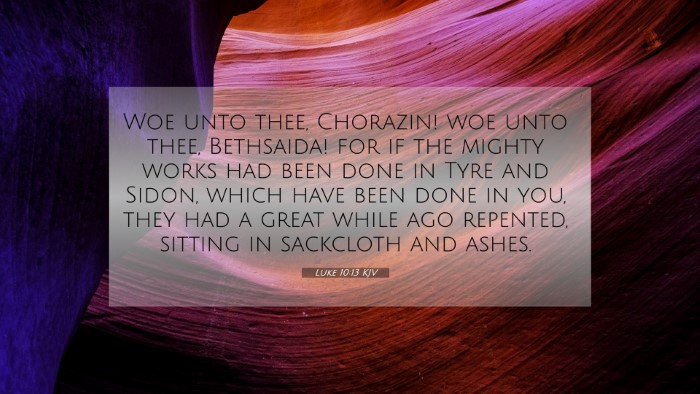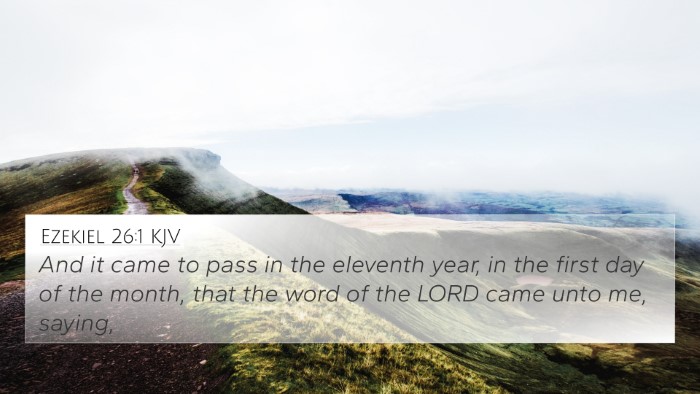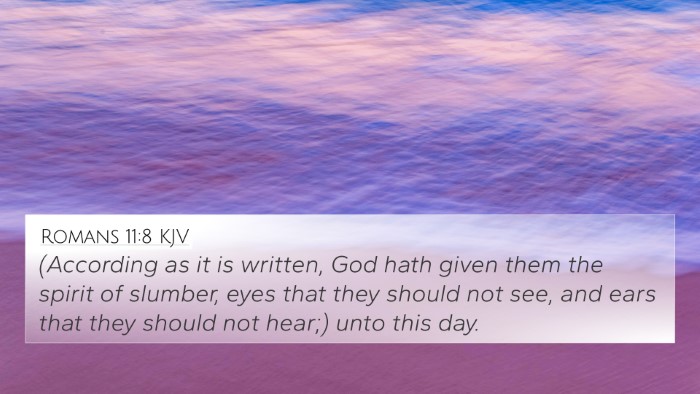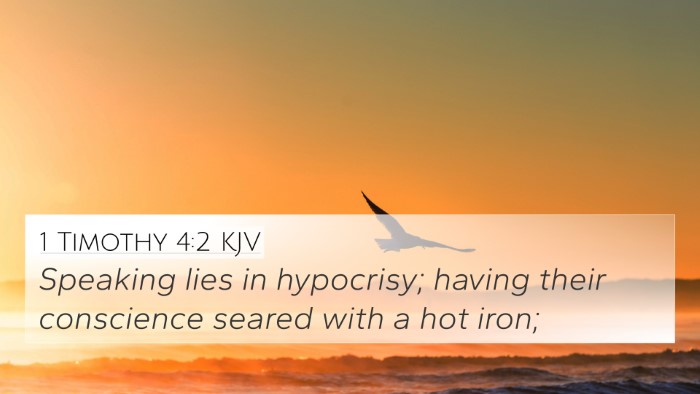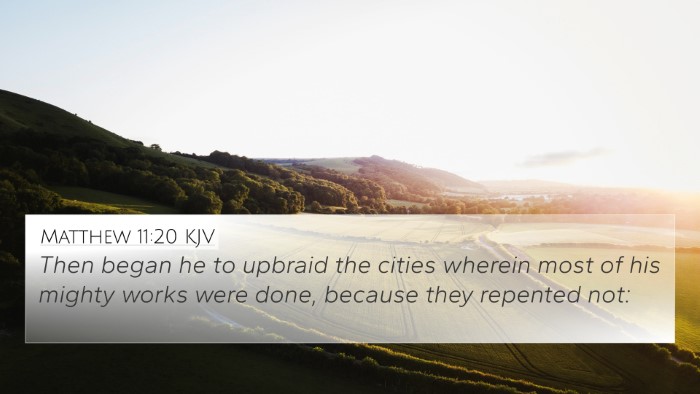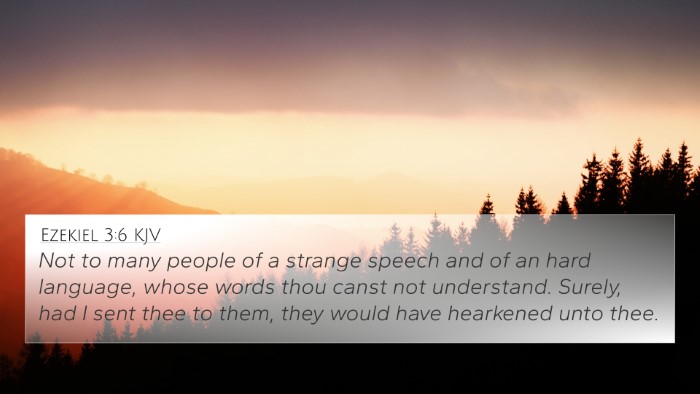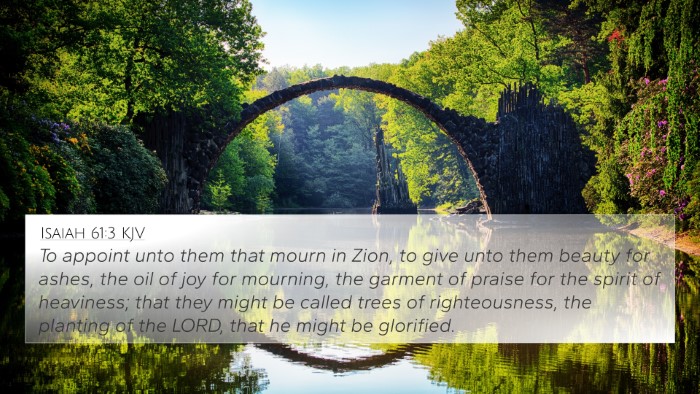Bible Verse Meaning: Luke 10:13
Luke 10:13 states: "Woe unto thee, Chorazin! woe unto thee, Bethsaida! for if the mighty works had been done in Tyre and Sidon, which were done in you, they had a great while ago repented, sitting in sackcloth and ashes."
This verse is a part of Jesus' admonishment towards the cities of Chorazin and Bethsaida, which experienced His miracles but remained unrepentant. The significance lies in the concept of accountability towards divine revelation and the repercussions of rejecting such revelation.
Summary of Commentary Insights
-
Matthew Henry:
Henry emphasizes that the cities which had witnessed Jesus’ miracles are held to a higher standard because they failed to repent despite clear demonstrations of divine power. His lament shows the depth of His disappointment over their spiritual blindness.
-
Albert Barnes:
Barnes discusses the implications of judgment for those who have seen the grace and power of God but has remained indifferent. He draws a comparison to Tyre and Sidon, cities known for their wickedness but that would have responded positively had they witnessed the same miracles.
-
Adam Clarke:
Clarke highlights that this verse reflects God's justice. The condemnation of Chorazin and Bethsaida illustrates that with more light (revelation) comes greater responsibility. He stresses the inevitability of consequences for rejecting the truth.
Connections Between Bible Verses
Luke 10:13 establishes a strong theme of judgment and repentance which resonates through various sections of Scripture. Below are some significant Bible verse cross-references that relate to this theme:
- Matthew 11:20-24: Jesus speaks judgments against the same cities, reinforcing the weight of their unrepentance.
- John 15:22: Here, Jesus states that if He had not come and spoken, they wouldn’t be guilty; this emphasizes the importance of responding to revelation.
- Romans 1:18-21: These verses discuss God's wrath on those who suppress the truth, highlighting the connection to accountability.
- Ezekiel 18:30: An Old Testament call to repentance that demonstrates God's desire for people to turn from their wicked ways.
- 2 Peter 2:6: This verse reflects on judgment's reality for those who reject God, paralleling the fate that awaits Chorazin and Bethsaida.
- Revelation 20:12: This verse speaks of the final judgment, wherein people are held accountable for their deeds based on the revelation they received.
- Hebrews 10:26-27: It states the dire consequences of rejecting the truth post-revelation, linking back to Jesus' warnings.
Thematic Bible Verse Connections
The theme of unrepentance despite divine revelation is prevalent throughout the Bible. Jesus’ lament in Luke 10:13 serves as a reminder that greater light brings greater responsibility. This notion can guide readers in their Bible cross-reference guides and studies:
- Tools for Bible Cross-Referencing: Utilize tools such as a Bible concordance to locate themes of judgment, repentance, and accountability across the Scriptures.
- Identifying Connections: Explore links between Old and New Testament teachings regarding divine mercy and judgment.
- Comparative Bible Verse Analysis: Look at how different Bible authors present the theme of accountability to God's revelation.
- Cross-Referencing Bible Study Methods: Consider practical methods for studying these connections through thematic studies.
Conclusion
In conclusion, Luke 10:13 serves as a profound reminder of the weight of divine revelation and the expectation for repentance. Analyzing this verse in conjunction with other related Scriptures can deepen understanding of the interconnectedness of biblical teachings about accountability and the call to repentance. Engaging in cross-referencing Bible study enhances one’s ability to draw parallels across the collective biblical narrative, thus enriching the reader's faith journey.
As believers and scholars, recognizing the gravity of unrepentance in light of God's demonstrated power is essential. Through tools for cross-referencing and thematic analysis, we can apply the teachings of Luke 10:13 to our lives and understand the broader message of repentance and accountability found throughout Scripture.


